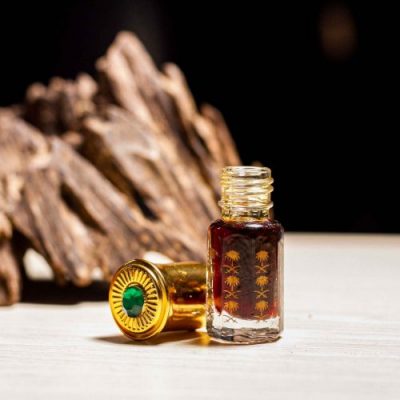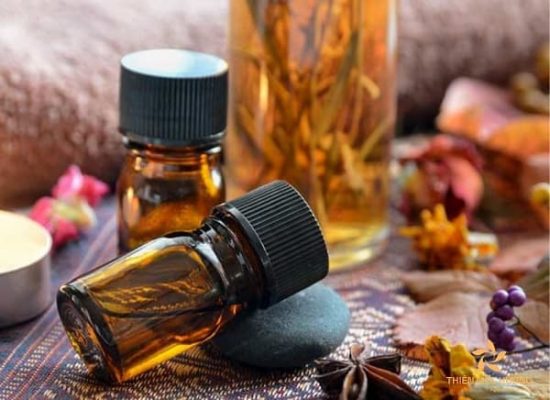Introduction of Agarwood Perfume

Material-made Agarwood perfume: Agarwood perfume, also known as oud or aloeswood, is a highly sought-after aromatic resin obtained from the Aquilaria tree species. These trees are primarily found in Southeast Asian countries, including Thailand, Cambodia, Vietnam, and Malaysia. So, agarwood is known for its deep, intricate, and opulent perfume oil, making it a prized ingredient in the world of perfumery.
The formation of agarwood is triggered by a specific type of fungal infection, which activates a defense mechanism within Aquilaria trees. Consequently, the trees produce resinous substances that gradually accumulate within their heartwood. Over time, this resinous material metamorphoses into agarwood, renowned for its distinctive aroma.
2. Distillation Process and Impact on Agarwood Perfume Quality: To obtain the aromatic essence from agarwood, a meticulous distillation process is employed. This process involves the careful application of heat to agarwood chips or powder, allowing the collection of the vapor containing the essential oils responsible for agarwood perfume.
The quality of the distillation process assumes a pivotal role in shaping the fragrance profile and the overall excellence of agarwood oil perfume. Skillful distillation techniques are vital to preserving delicate aromatic compounds while eliminating undesirable impurities. Factors such as the duration and temperature of distillation, along with the choice of distillation apparatus, hold significant sway over the ultimate fragrance achieved.

The growing appeal of oud-based perfumes
- Unique Fragrance: Oud possesses a distinct and captivating fragrance. The blending of aromatic compounds in oud creates a unique scent profile that sets it apart from conventional perfumes.
- Natural and Herbal Appeal: Consumers are growing more interested in natural and herbal products for health and beauty. Oud is a natural product from the wood of trees and does not contain harmful synthetic chemicals commonly.
- Spiritual and Soulful Significance: Oud has played a significant role in spiritual and religious ceremonies for centuries. Its fragrance has the power to soothe the soul, elevate one’s spirits, and create a sacred ambiance. Using oud-based perfumes may serve as a way to connect with the spiritual and create a tranquil atmosphere.
- Cultural and Historical Value: Oud holds a special place in many cultures and histories. Incorporating oud-based perfumes can be seen as a way to connect with tradition and preserve cultural heritage.
- Mood Enhancement and Well-being: Some believe that the fragrance of oud can have a positive impact on mood and well-being. It may help reduce stress, and anxiety, and promote relaxation.
Why should you use this?
Using perfume made from agarwood offers several compelling reasons:
- Unique and Luxurious: Agarwood’s distinct and captivating fragrance sets it apart from other perfumes. Its rich, woody, and resinous aroma evokes a sense of sophistication, elegance, and luxury. Perfumes made from agarwood provide a unique olfactory experience that stands out from mainstream fragrances.
- Long-lasting Scent: The aromatic compounds in agarwood have excellent staying power on the skin, ensuring the fragrance lingers throughout the day. This long-lasting quality allows individuals to enjoy the captivating scent for extended periods without frequent reapplication.
- Complexity and Depth: Perfume made of agarwood offers a complex and multi-layered Agarwood oil perfume profile. It contains a blend of various notes, including earthy, spicy, sweet, and floral elements. This complexity adds depth and character to the perfume, creating an intriguing and evolving scent that is captivating.
Lastly, the extraction involves a careful process to preserve its unique properties. Using perfumes from natural ingredients like agarwood provides an authentic and exotic touch, connecting individuals with nature and ancient traditions.






